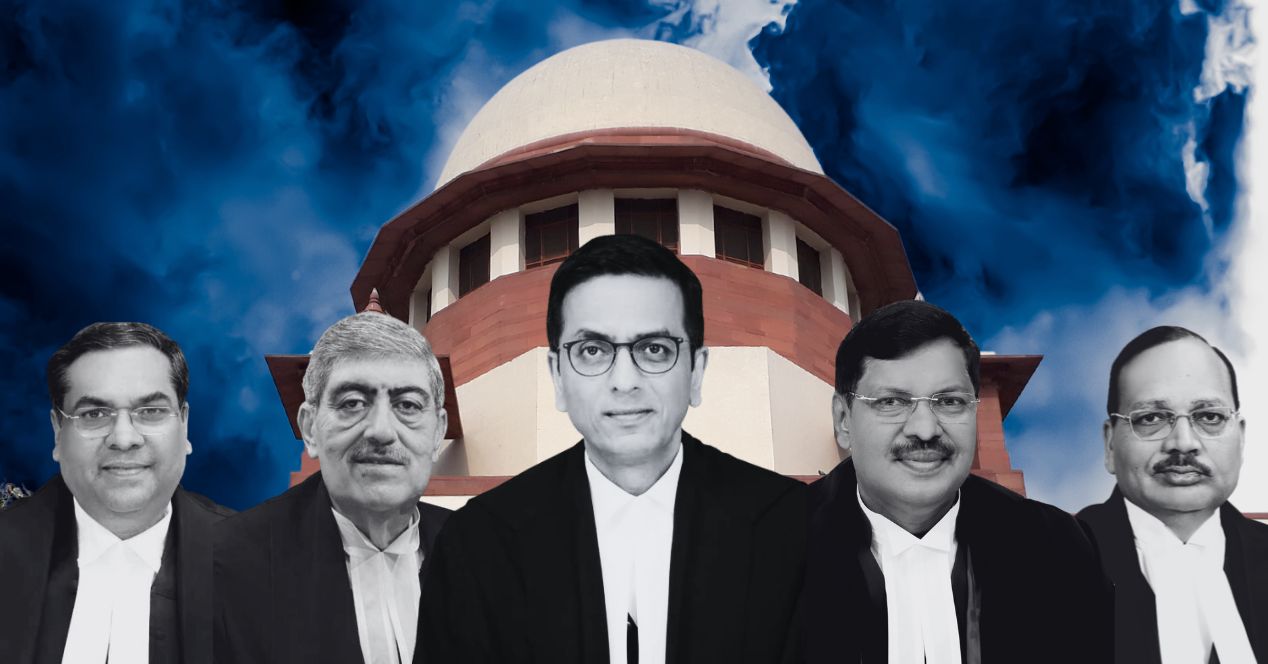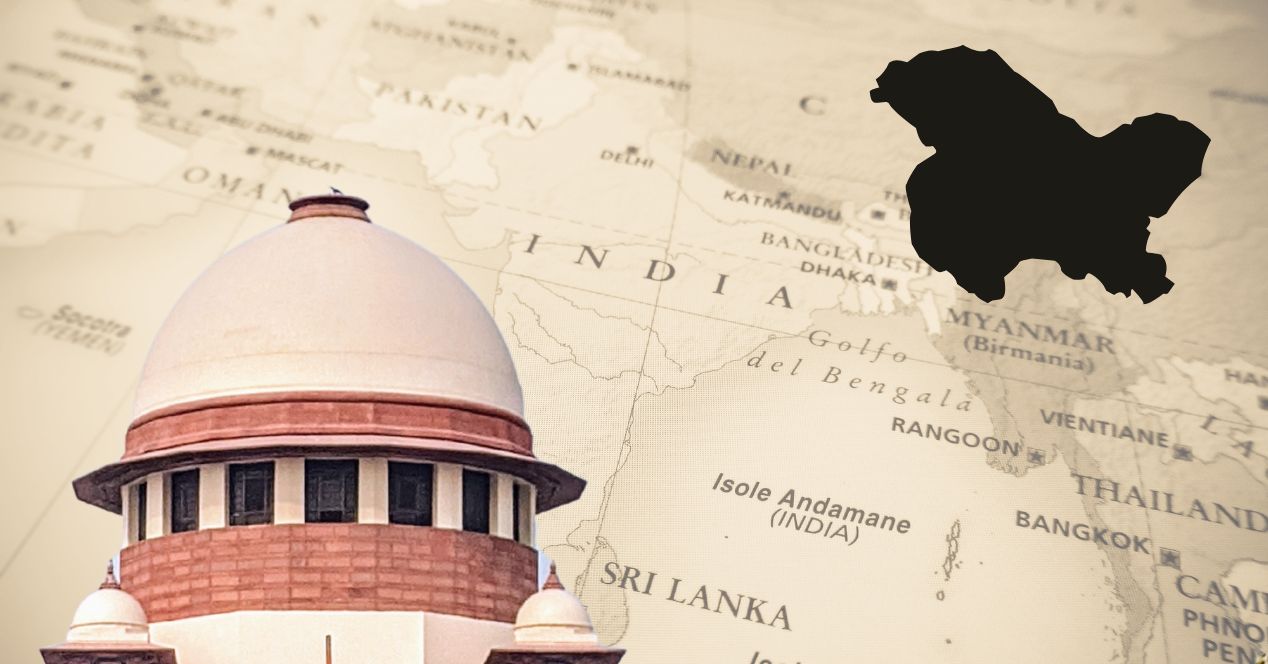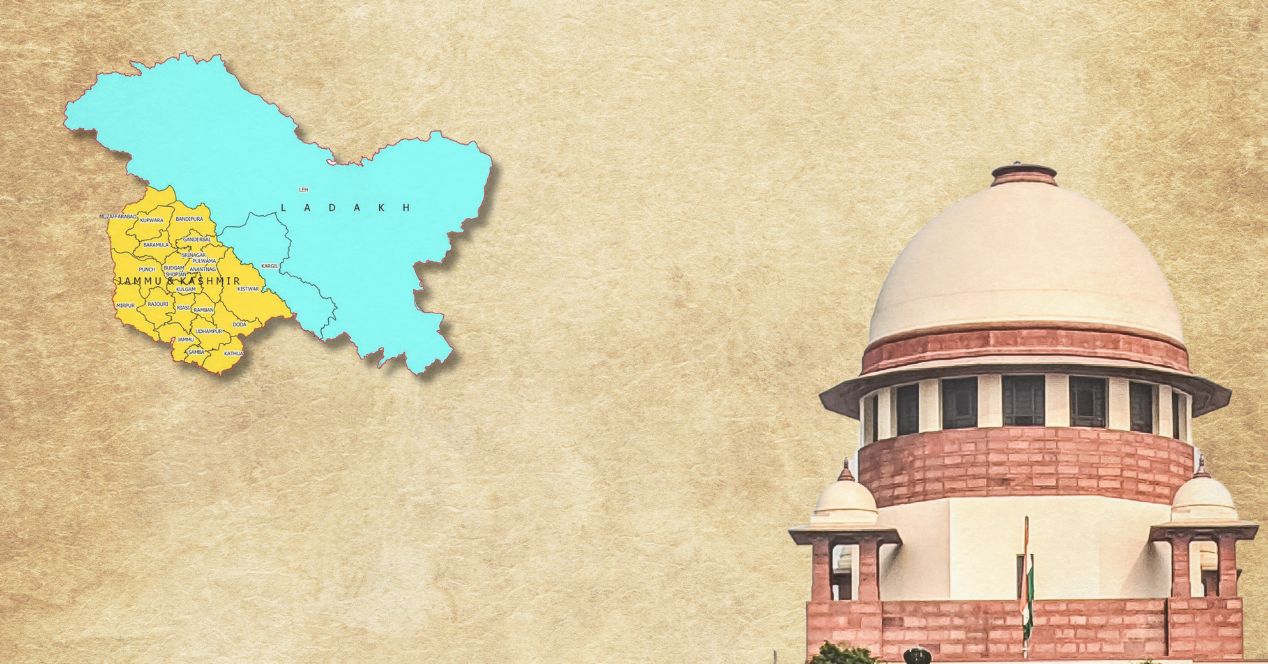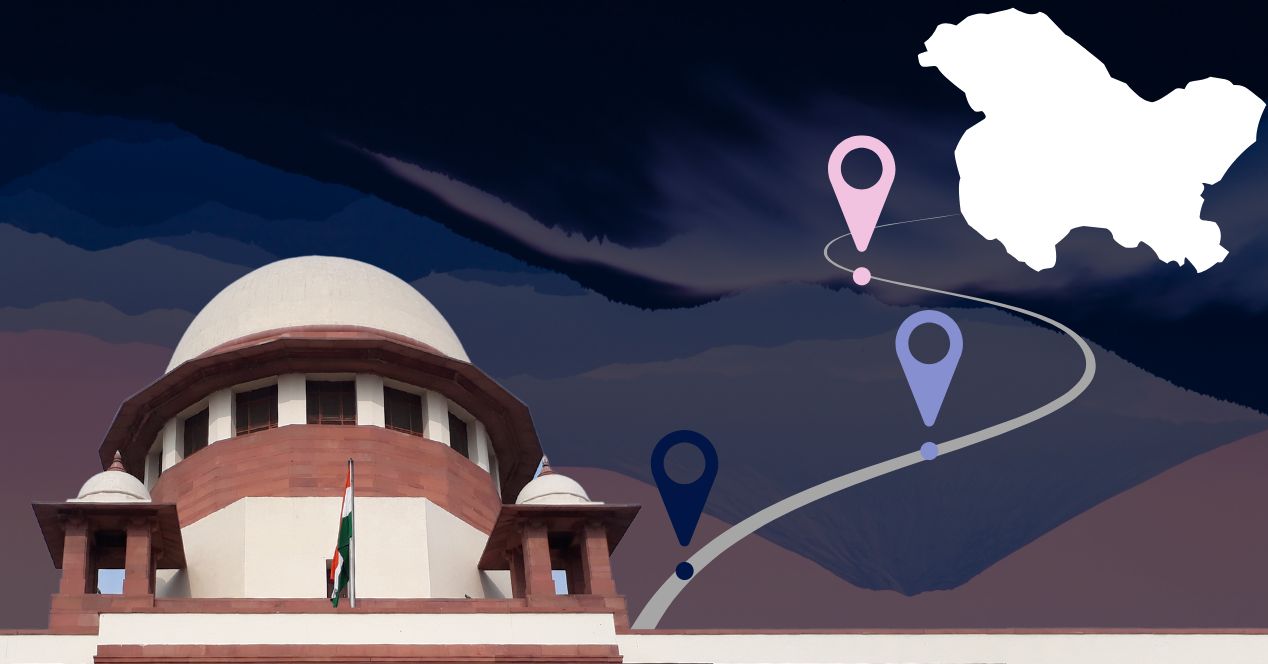Abrogation of Article 370 | Day 6: Power of the President under Article 356 is not absolute, argues Dhavan
Challenge to the Abrogation of Article 370Judges: D.Y. Chandrachud CJI, S.K. Kaul J, Sanjiv Khanna CJI, B.R. Gavai J, Surya Kant J
Today, the Bench heard arguments from Senior Advocates Rajeev Dhavan and Dushyant Dave. Dhavan’s arguments stressed on India’s diversity, and the fact that the Constitution recognises and engages with different realities in different states and offered bespoke solutions. Article 370, as applicable to Jammu and Kashmir, was one example of this diversity.
Dave, who argued for an hour before the close, suggested that by permanently abrogating Article 370 when J&K was under President’s Rule, the Union government had abused the principles of democracy and federalism enshrined in the Constitution.
Last week, the Bench heard arguments from Senior Advocate Zaffar Ahmad Shah for the Bar Association of Jammu and Kashmir. He contended that the autonomy of J&K, which is enshrined in the 1954 Presidential Order, Article 370 and the Constitution of J&K, was decimated by abrogating Art. 370.
Background
Article 370 of the Constitution of India provided the State of Jammu and Kashmir with a special constitutional status. The provision substantially limited Parliament’s power to legislate for the State compared to other states.
On August 5, 2019, the Union government diluted Article 370, revoking Jammu and Kashmir’s special status. First, President Ram Nath Kovind issued presidential order CO 272. This Order allowed the Union to amend Article 370 without the recommendation of the Constituent Assembly.
Since J&K was under President’s Rule at the time, the powers of the Jammu and Kashmir Legislative Assembly were vested in the Union Parliament. So, a few hours after CO 272 was issued, the Rajya Sabha recommended the abrogation of Article 370 through a Statutory Resolution under Article 370(3).
On August 6, 2019, President Kovind issued a Proclamation, CO 273, putting the Rajya Sabha’s recommendation into effect. All clauses of Article 370 ceased to operate, except Clause 1 which was amended to state that the Constitution of India applies wholly to the State, removing the special status awarded to Jammu and Kashmir.
On August 9, Parliament passed the Jammu and Kashmir Reorganisation Act, 2019. This Act bifurcated the State of Jammu and Kashmir into two Union Territories—J&K and Ladakh.
Petitions were filed challenging the constitutionality of the dilution of Article 370 and the bifurcation of the State into two Union Territories.
On August 28, 2019, a 3-Judge Bench led by former CJI Rajan Gogoi referred the case to a 5-Judge Constitution Bench.
On October 1, 2019, 5-Judge Constitution Bench of the Court comprising Justice N.V. Ramana, S.K. Kaul, R. Subhash Reddy, B.R. Gavai and Surya Kant decided to hear the case from November 14th, 2013. The petitioners sought the case to be placed before a larger Bench. On March 2nd, 2020, the Bench refused to refer it to a larger Bench.
On July 3, 2023, the Supreme Court listed the matter to a Constitution Bench led by Chief Justice D.Y. Chandrachud. The Bench assembled on July 11, 2023 and decided to hear the challenge from August 2, 2023.
Dhavan: Conditions under Article 3 Cannot be Ignored
Dhavan began the day’s arguments with the claim that Article 3 (and the modifications used to make it applicable to J&K) requires the consent of the legislative assembly to be taken before state boundaries are altered. This process cannot be substituted by a proclamation under Article 356, as was done with Presidential Order CO 272. Dhavan argued that circumventing the conditions under Article 3 using President’s Rule has the effect of an amendment, which is “subversive” of the Constitution.
At this stage, Chief Justice D.Y. Chandrachud asked whether this meant that there were exceptions to Article 356. While the President and Parliament assume powers in a state, does this mean they cannot exercise the powers of the Governor and the State Legislature under Articles 3, 4, and 370? Dhavan responded that his focus was on process and procedure: Article 370(1) has its “own discipline”, which cannot be overridden by President’s Rule. The powers under Article 356 are not absolute, and the provision certainly does not grant power to deprive the Constitution of its mandatory processes.
Dhavan: Autonomy of States is Fundamental to Our Constitution
While arguing in favour of bespoke safeguards, Dhavan patiently took the Court through a list of provisions in the Constitution that gave effect to the unique needs of people in different areas by recognising their individual autonomies and histories.
For instance, he pointed out that Article 164 appoints a Minister in the states of Chhattisgarh, Jharkhand, Madhya Pradesh and Odisha to govern the welfare of Scheduled Castes and Other Backward Classes.
Reiterating his argument from last week, he argued that Union Territories could not be created through Presidential Orders under Article 239. Shedding light on Articles 239A and 239AA, Dhavan argued that special provisions were made with reference to territories such as Pondicherry and the NCT of Delhi to give effect to their needs.
Further, Dhavan drew the Bench’s attention to other provisions of the Constitution such as Article 243M which curtails the Union’s powers in respect of Scheduled Areas in Meghalaya, Manipur, Mizoram, Nagaland, and Gorkhaland in West Bengal. He argued that all these provisions existed to give effect to the federal structure of the Constitution and the special needs of the locals.
Next, he cited Article 244A which allows for the creation of an “autonomous state” within Assam in certain tribal areas. This “autonomy”, Dhavan argued, was fundamental to our Constitution. He submitted that these special provisions were a “regular feature” of the Constitution to enable the needs of the SC, ST and OBC communities.
He went on to explain that the creation of Tribal Advisory Councils under Schedules V and VI of the Constitution in the northeastern states and other regions proved that “individual federations” were given autonomy to meet their specific needs.
All these examples, Dhavan argued, were facets of “multi-symmetric” federalism. This was crucial to our Constitution and could not be done away through executive orders.
Dhavan: J&K Lost its Statehood as a Result of the Abrogation of Article 370
Last week, the Bench had asked Senior Advocate Zaffar Shah what J&K had lost as a result of the abrogation of Article 370. Today, Dhavan attempted to answer this question categorically. “To put it simply,” he said, “J&K lost everything” with the abrogation.
More specifically, he argued that it lost its statehood when it was reorganised as two Union Territories. Secondly, he urged that the abrogation “indirectly” abolished J&K’s Constitution. Third, he claimed that the state had lost the residuary powers it had retained, based on the Instrument of Accession and Article 370. Lastly, Dhavan argued that the State also lost the power to be “consulted” in any matter that pertains to it.
Dave: The Two Presidential Orders are a Fraud on the Constitution
Dave reiterated many of Dhavan’s views about the permanent nature of Article 370.
The thrust of his argument today was that the two Presidential Orders of 2019 played “fraud” on the Constitution. The laws made during President’s Rule, Dave suggested, were limited to that period: they could not amend permanent provisions of the Constitution. Therefore, the President could not abrogate the provision when the state was under President’s Rule.
Dave also submitted that the Union’s only justification for the abrogation was “national interest”. This was insufficient as it did not describe what this interest was. He argued that an arbitrary exercise of powers would seriously breach democratic principles.
Dave will resume arguments tomorrow August 17, 2023.





